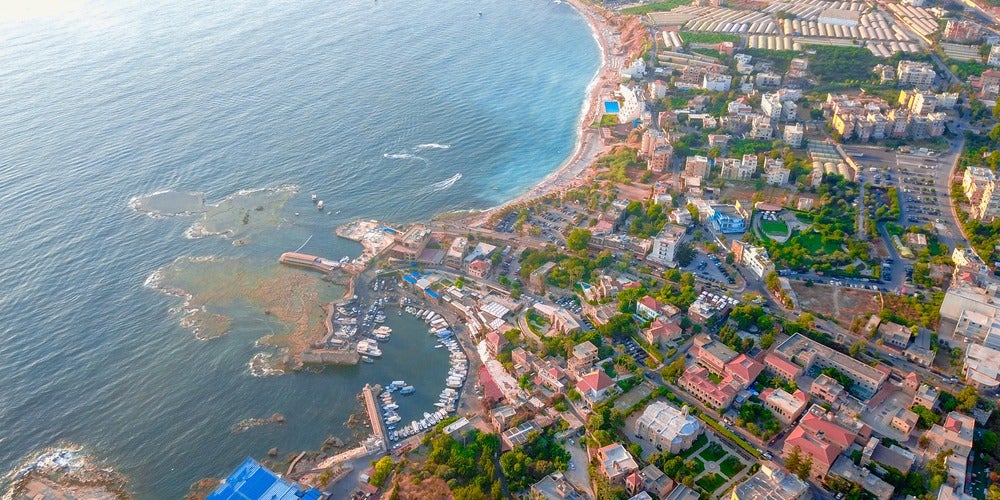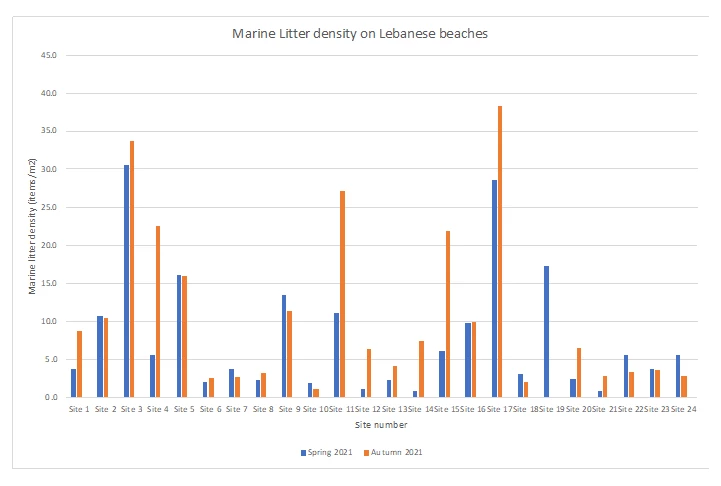 Aerial view of Lebanon Coastline
Aerial view of Lebanon Coastline
Lebanon’s protracted solid waste management problems were aggravated over the past few years as a result of the financial crisis which reduced waste management to a bare minimum, leading to inadequate collection and disposal practices. In addition, other factors, such as the lack of enforcement of waste management legislation, the growing littering behavior among citizens, and weakened local services in highly urbanized coastal areas have further aggravated the situation of the waste management system in Lebanon.
This situation has severe environmental consequences on the Lebanon’s marine and coastal areas. To better understand this issue, a comprehensive baseline assessment titled "Marine Litter Baseline in Lebanon - 2021" was conducted to identify the sources, pathways, and hotspots of marine litter in the country. The survey was funded by the PROBLUE Trust Fund and implemented by the World Bank in close coordination with the Ministry of Environment. It was conducted by the consortium Resources & Waste Advisory Group, MORES s.a.r.l and the Institute of the Environment at the Balamand University.
The baseline survey employed four methodologies to collect primary data on marine litter in Lebanon, including the Waste Wise Cities Tool (WaCT), the Waste Flow Diagram (WFD), the Standing-Stock survey, and the Accumulation survey. Terrestrial, beach, and marine surveys were conducted over two rounds, conducted in April and October 2021, offering insights into the quantity, composition, and seasonal fluctuations of marine litter. Shockingly, the surveys revealed that marine litter was present everywhere on the Lebanese beaches, with 76% of the items collected being plastics. The surveys indicated that marine litter density increased by 37% between April and October 2021 (from 7.9 to 10.4 items/m2), and confirmed the same hotspots during surveys, which are around urban areas, including Tripoli and Saida.
The study unveiled that over 82% of marine litter originated from land-based sources. The most commonly found items included single-use plastics, such as bottle caps, beverage bottles, cigarette butts, cups, and straws, often left behind by beach visitors. GIS analysis highlighted an alarming increase in uncontrolled disposal sites near river shores (with 73 potential new sites since 2017 nearby to perennial rivers), potentially contributing to marine litter through river pathways. The findings also identified three primary sources of plastic leakage: direct littering by beach visitors, uncollected waste within cities, and uncontrolled disposal sites along riverbanks.
The surveys examined the post-collection regimes of seven cities in Lebanon- Beddaoui, Byblos, Ghazir, Beirut, Ghobeiri, Aadousiyeh and Tyre, revealing that an average of 3.1 kg/person/year of plastic waste escaped from the solid waste management systems, which is a leakage rate six times higher than that of a well-performing waste management system. Open collection containers were identified as major contributors to plastic leakage, which emphasized the importance of addressing current waste collection systems in the country as a key factor influencing marine litter.
Coastal tourism activities were found to be the main source of marine litter, with visitors leaving behind a trail of single-use plastics. It is important to address behavior and promoting responsible practices among residents and tourists alike.
The Marine Litter baseline report presents recommendations for future research to enhance the dataset as well as specific actions to prevent marine litter, including shifts in policies, regulations, financing, and the institutional framework for effective waste management.
With such critical insights into Lebanon's marine litter crisis, there is an urgent need for action. By understanding the sources, pathways, and hotspots of marine litter, authorities can develop a targeted and comprehensive approach to tackle this pressing environmental issue. Implementing the recommended actions, supported by stakeholder engagement, will pave the way for a cleaner and more sustainable future, preserving Lebanon's marine and coastal ecosystems for generations to come.




Join the Conversation